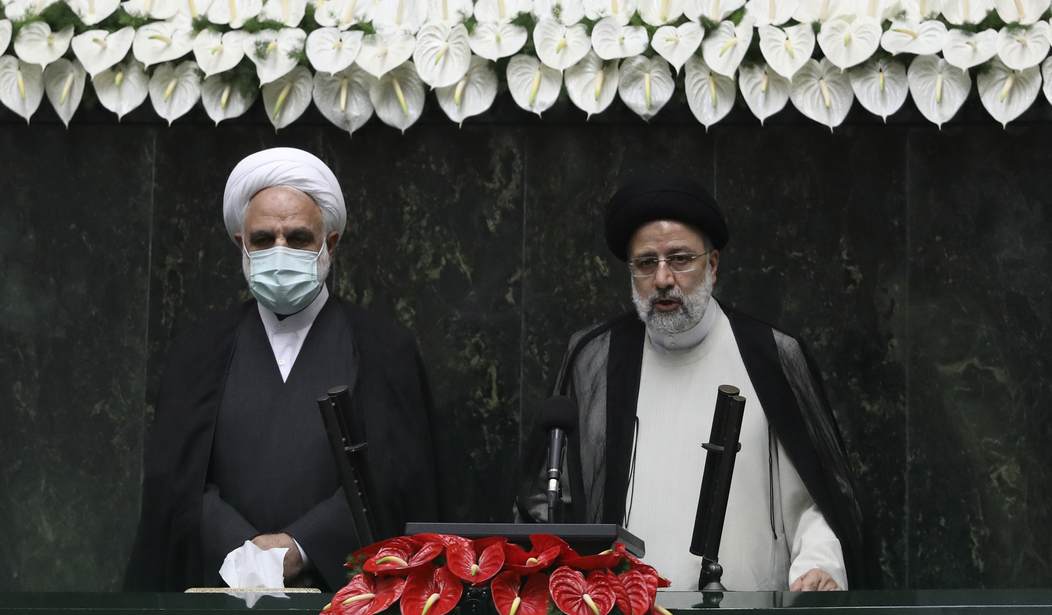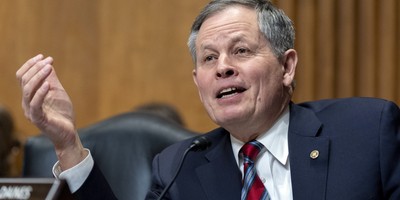On December 8, 2020, the U.S. Department of the Treasury sanctioned Al Mustafa International University in Qom, Iran, the principal institution recruiting, indoctrinating, and training foreign converts to Shiite Islam. On October 31 of this year, as Iranians continued their protests against the regime, Canada’s government followed suit. Al Mustafa, the Canadian government stated, is “an entity that spreads the regime’s ideology abroad through its global branches” and serves as a vector for its students’ recruitment into the elite Quds Force (QF) of Iran’s Islamic Revolutionary Guard Corps (IRGC). Given Al Mustafa’s role in support of propaganda and terrorism, the Biden administration should make it a priority to target its foreign networks.
A great place to start would be the university’s Latin America network and its leaders, first and foremost Sheikh Mohsen Rabbani, head of the university’s Latin America department and director of its Spanish-language department, Fundación Cultural Oriente (the Islam Oriente Cultural Institute). Though he was implicated in the bombing of the AMIA Jewish cultural center in Buenos Aires in 1994, remarkably, Rabbani has never been sanctioned. However, his dual role as chief Iranian propagandist in Latin America and key terror plot conspirator make him a perfect target.
During the past four decades, Iran has spread its message and gained supporters, then leveraged their support to pursue its political goals, including the plotting of successful and unsuccessful terror attacks which relied on logistical support from local Iranian networks. Latin America became an early target because Iran’s clerical leadership viewed it as fertile ground for the spread of anti-American ideology and because of its proximity to the United States. Al Mustafa and its foreign converts became the regime’s main vector for delivering its revolutionary gospel.
Once the Islamic Revolution consolidated power in Tehran, it begun establishing cultural centers abroad — relying on a well-funded network of schools for missionary clerics and foreign students, publishing houses, and media platforms in dozens of languages, managed by Al Mustafa or its graduates — whose stated goal is to spread the message of the Islamic Republic’s founder, Ayatollah Ruhollah Khomeini. As noted by Keiko Sakurai, author of an important study on Al Mustafa, once the Islamic Republic took control, in the early 1980s, of the seminaries which later became Al Mustafa University, non-Iranian graduates were expected “to act as ambassadors who would disseminate the revolutionary message” of Iran. Accordingly, as Sakurai observed, Al Mustafa’s academic programs are mostly focused on propaganda training, not on Islamic studies.
Recommended
As a result, only a few program graduates have the status of religious leaders, and Al Mustafa’s teachers and Iran’s clergy retain control in matters of religious doctrine over foreign graduates, who fulfill the task of indoctrination, recruitment, and communal leadership in their own countries. This also creates a pretext for Al Mustafa clerics to periodically visit satellite communities or obtain visas to serve in them permanently as political commissars in the guise of spiritual leaders.
Propaganda is a central component of Al Mustafa’s networks abroad, yet by no means the only one. While Iran’s cultural centers usually act as its unofficial representatives abroad, they and their members can also support the regime in other ways, including by supporting Tehran’s terror plots.
Rabbani, more than anyone else in Iran’s missionary cadres, embodies this toxic convergence of indoctrination and terrorism, making him a prime candidate for U.S. sanctions.
Arriving in Argentina on a tourist visa in 1983 as a young cleric with impeccable revolutionary credentials, Rabbani settled in Buenos Aires, the first documented instance of an Iranian missionary reaching Latin America. His involvement in the AMIA bombing, which left 85 dead and more than 200 wounded, earned him an international arrest warrant from Argentine authorities and a red notice from INTERPOL that ultimately forced him to retreat to Iran.
Somewhat overlooked, but no less important than Rabbani’s role in the AMIA bombing — the deadliest terror attack in the Americas before 9/11 — is his role as Al Mustafa’s leading Spanish- and Portuguese-propagandist in Latin America. His crowning achievement is establishment of a continent-wide network of institutions and followers permanently engaged in exporting Iran’s revolutionary message while assisting Tehran and its emissaries in their missions, including ones that turn deadly.
Rabbani initially travelled to Latin America by the “encouragement and guidance” of Ayatollah Khomeini himself. Originally dispatched to Buenos Aires on a three-month propaganda mission to strengthen the Shiite identity of expatriate communities, he ended up staying for 14 years, travelling extensively across the continent.
After his initial visit, which lasted nine months, he returned to Iran to advise Iranian officials of “the need to enter Latin America.” According to his autobiography, published in a series of videos available on the Islam Oriente platform of Fundación Cultural Oriente, he began working as secretary of the Ahlul Bayt World Assembly, where his superiors instructed him to take responsibility for Latin America, since no one else knew as much about it as Rabbani did from his initial stay.
As cover for his efforts, Rabbani quickly returned to Argentina and served as a representative of the Iranian Ministry of Meat, also becoming very involved with the At-Tawhid Mosque in Buenos Aires, teaching religion and eventually becoming its leader. Only much later, in 1993, did he become cultural attaché at the Iranian embassy in Buenos Aires, just months before the AMIA bombing.
Upon returning to Iran in 1997, he continued to lead propaganda efforts in Latin America from Qom, and he is still an advisor and teacher at Al Mustafa andhead of the Islam Oriente Cultural Institute, which since 2002 has been in charge of producing learning materials for Spanish- and Portuguese-speaking audiences.
This effort has borne significant fruit, and according to recent reports, approximately 1,000 Latin American students were trained between 2007 and 2013 under Rabbani’s supervision. It is impossible to assess the accuracy of such figures, but there is ample evidence that Al Mustafa proselytizes in the region and regularly brings large groups of Latin American converts to Qom for study programs under Rabbani’s direct supervision that are paid for by the regime. Islam Oriente produces all indoctrination materials — from children’s books to scholarly journals — that are needed to train students and their families in their native languages, while the centers abroad recruit prospective attendees.
The fruits of Rabbani’s labor in Latin America are impressive. The 2015 posture statement by U.S. Southern Command noted that Iran had established more than 80 cultural centers in the Western Hemisphere, despite the small Shiite population in the region. For General John F. Kelly, then commander of Southern Command, “The purported purpose of these centers is to improve Iran’s image, promote Shi’a Islam, and increase Iran’s political influence in the region.” Al Mustafa’s main regional center, in Caracas, operates under the lofty name of Centro de Intercambio Cultural Latino America (Center for Intercultural Exchange in Latin America, or CICL), but many more such centers exist across the region.
Rabbani’s disciples lead many of them as junior clerics, while others run them as lay leaders, establishing activities such as journals, radio channels,publishing houses, translation services, educational programs, lectures, and outreach to local communities. Al Mustafa emissaries regularly travel to the region to supervise the centers’ activities and amplify their impact.
Latin America’s centrality to Al Mustafa’s global outreach is highlighted by the presence, since at least 2008, of a permanent Al Mustafa representative in Caracas. Through its presence and ideological affinity with Nicolás Maduro’s regime in Venezuela, Al Mustafa is moving beyond the sphere of cultural and religious institutions, sponsoring academic platforms within Latin American universities and placing its own graduates in social sciences departments across the region.
The Biden administration has so far neglected to act on Treasury’s December 2020 designation of Al Mustafa, doing little to counteract its influence operations in Latin America. The administration’s past treatment of Al Mustafa–linked mosques, cultural centers, and missionary activities in the region as harmless venues for spiritual fulfillment was a dangerous underestimation.
Worse, the evidence linking Rabbani to the AMIA bombing, coupled with his role inside Al Mustafa, indicates that the network he established, and the clerical cadres involved are not merely players in Iran’s efforts to export its toxic ideology, but are likely part of a dormant terror network directly tied to the Quds Force. Sanctioning Rabbani, his lieutenants, and the Al Mustafa–affiliated centers in Latin America would put the spotlight on their role as Iranian propagandists. Along with steady diplomatic pressure on governments in the region, this might lead to restrictions on their activities and travel bans for itinerant missionaries sent from Iran.
It is long past time to sanction Rabbani and his network, and the Biden administration should rectify this omission.
Emanuele Ottolenghi is a Senior Fellow at the Foundation for Defense of Democracies, a non-partisan research institute in Washington D.C.

























Join the conversation as a VIP Member